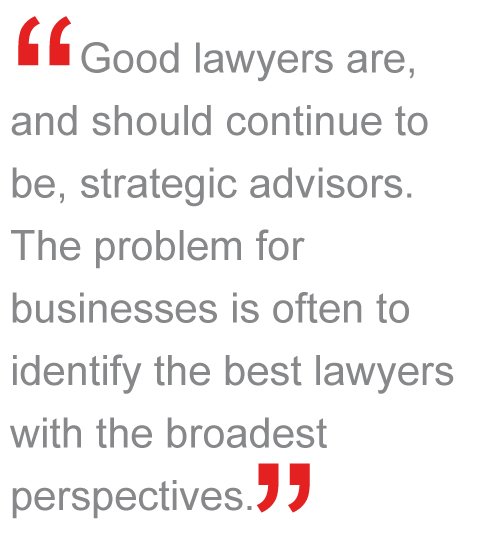Back office to Boardroom: lawyers as strategic advisers?
Should the most senior lawyers within a business have a say in its strategic direction or should they stay out of the spotlight and stick to legal issues, asks Stephen Denyer
Si los abogados aspiran a ganarse un puesto al más alto nivel en una empresa, ya sea como Consejero Delegado o Presidente, deben disponer de una serie de habilidades distintas a las de un abogado clásico ejerciente, afirma Stephen Denyer de Allen & Overy. Sin embargo, muchas de estas habilidades son inherentes a la práctica de la mayoría de abogados internacionales, y suelen acomodarse a las demandas de un negocio.
Few major companies yet include their General Counsel or senior lawyers at the top table and fewer still count lawyers as CEO or Chairmen. But why is this? Are lawyers too risk averse or lacking the key skills required to operate at Board level? Or is there a case to be made for lawyers having a seat on the board of major businesses – even more so with the growing importance of risk management and increasing weight of regulation?
There is clearly a perception that we are just not programmed to operate in the Boardroom. Lawyers, the argument goes, focus on issues and problems, rather than solutions; they lack entrepreneurialism, communication skills and emotional intelligence. Added to this is the argument that, while law firms undoubtedly recruit the brightest young talent, they are trained to become specialists at the expense of broader considerations like strategy, finance and marketing.
Some question whether lawyers even want to be strategic advisors? Being a lawyer – in a firm or company – is arguably very different to being a strategist. So while some want to, and can, make that transition successfully, is it a change of role that all lawyers seek?
I would argue that many lawyers are already strategic advisers. Boards and Chairmen routinely rely on specialists’ opinions to make decisions and lawyers (whether in the background or foreground) play a critical role. The important distinction is that good lawyers are, and should continue to be, strategic advisors. The problem for businesses is often to identify the best lawyers with the broadest perspectives. 
While some legal advice is seen purely as an insurance policy, the best legal advice enables businesses to take risks and navigate complexities to achieve strategic objectives. If, as a lawyer, you are not already providing this type of advice you will simply fall down the ‘value chain’ and become dispensable.
Without a doubt there are valuable skills and perspectives that the best lawyers can bring to the table – intelligence, reasoning and analysis – but also an international perspective. In the immediate aftermath of the Lehman crisis, our firm received 570 requests for advice from 340 different clients, with a trend towards strategic advice over one-off issues. Businesses around the world turned to their lawyers to help them through the uncertainty – few other professions had the same global view of the crisis.
So why are there so few senior lawyers still among the top positions of the world’s biggest companies? The reasoning seems cyclical: as long as the perception remains that lawyers are not right for the role few opportunities are offered.
Lawyers need to address therefore how to build up the relevant experience – the portfolio – needed. The wrong way, it seems, is to wait until retirement from private practice. Skill sets have to be developed much earlier in a career. For example, with experience on smaller boards such as charitable organisations, universities and schools, or in the government or public sector – positions that provide experience of different governance models to that of a partnership and are far less likely to throw up conflict issues than non-executive director positions in a company.
The message seems to be similar for General Counsel or senior in-house lawyers making the step up to a Board position within their organisation. The critical things are to experience all areas of the business and understand fundamental issues like the bottom line.
Finally there is the obvious point that, having gained a seat on (or exposure to) the top table, it is vital to make the right impact. Being on a Board can be very different to other leadership roles: there is rarely the luxury of having all the facts, decisions are never made with 100 percent certainty, emotions and relationships between Board members come into play and, fundamentally, people want solutions – not analysis and problems.
But one thing is certain: if you don’t “get” the dynamic of the board and make a strong contribution quickly, you can easily become isolated and marginalised. There’s no time to learn on the job.












